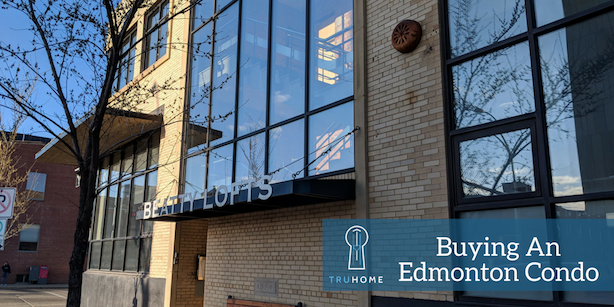Buying An Edmonton Condo
Fri, 11 MayAre you ready to purchase a new home and are considering the Edmonton condo lifestyle? There are different requirements that must be considered when choosing to buy a condo compared to a standard single family house? Furthermore, there are different things you need to know about when buying an Edmonton condo. These are all important items to consider and are something that you real estate agent can walk you through in more depth. However, there are several answers that you can find via this article.
How to Choose an Edmonton Condo
When it comes to condos, you are going to find that there are several that are available that are going to fit the style that you have, the budget that you want, and the type of lifestyle that you want. It is important to note that when you purchase a condo, you are purchasing the unit that you want, along with shared ownership of the common property that is in the area. Your unit is going to be like your own little house, thus you are responsible for its upkeep just as you would be if you had purchased a house that sat on its own.
There are basically two types of condos that are out there:
Conventional condo: This is the most common and refers to a condo that is located within a large building. Those who purchase here have ownership of everything inside their unit and shared ownership of the common property that may include air conditioning, plumbing, fitness centres, pools and the like.
Bare Land Condos: Unlike a conventional condo, where the boundaries of unit are wall to wall, a bareland condo is defined by a parcel of land in which the units boundaries are defined by reference to survey markers. Often times, a bareland condo will contain a structure (home) on it such as a townhouse, duplex or detached home. Depending on the corporations bylaws, an owner will typically have greater responsibility for their unit such as landscaping, exterior repairs etc. In some complexes, bare land condos will feature enhanced shared amenities such as pools, fitness centres etc.
Should You Buy New?
When condo shopping, one of the biggest questions that you will be asked is whether you want a brand-new unit that no one has lived in or in buying one that is used and has been lived in? Buying new is often a dream of many people, however, they need to truly understand what they are going to be gaining and losing in buying new. The drawbacks of buying new include:
- You may have to wait for months for the condo to be complete
- You may be relying on drawings and 3-D constructions of what you are buying rather than seeing it in person
- Move in dates are flexible with a new condo
- When buying new you are responsible for paying gst.
The pros of buying new include:
- It is move in ready once it has been complete
- You may be able to customize features when buying
- You get access to a new home warranty coverage (10 years)
- You may find something that is more modern compared to buying one already on the market
A resale Edmonton condo can be a great option for those who are not interested in a new condo. However, this also has pros and cons as well. The pros for buying a resale condo include:
- You usually get to move in sooner since you are not having to wait for construction to be complete
- You can physically see the unit and know what you are getting
- You can talk with others to see if the complex is something that you are going to be interested in
The cons of buying a resale include:
- The unit may need renovations since it may be older
- The amenities of the condo may be limited if it is older
Documents Needed for Purchasing am Edmonton Condo
There are several documents that you are going to need in order to purchase a condo. These documents will differ based on whether you are buying new or buying resale. However, some documents that may be required include:
- A purchase agreement
- By-laws of the condo
- Home warranty insurance contract
- Annual General Meeting of the condo board
- Management agreement of the condo board
- Certificate of Title
- Condo Minutes
- Insurance coverage
- Real property report
- Reserve Fund Study
At TruHome, we understand the in’s and outs of buying an Edmonton condo and would be happy to walk you through the process, including what you will need based on your personal situation and what type of condo you are interested in buying.
Tips for Buying a Condo
For those who are ready to buy an Edmonton condo, here are a few tips that can make this process easier and allow you to find the condo that is going to be a great fit for you in the future.
- Be sure that you fully look at the property if you are buying a resale. What do you like about the area? Are there things that you dislike? Do you think you can live with these dislikes?
- Be sure to talk to current condo owners in the area when buying resale. You need to know whether you are going to like living here due to the neighbours. Those who live here already can be a great source of what the feel of the area is.
- When buying new, be sure that you study the blueprints and proposed outlines of what the condo is going to be like.
- Consider whether you like the actual land location of a new condo before committing to buying this.
- Be sure to work with a real estate agent in either case, whether you are planning on buying a new condo or reselling one. You will find that the knowledge of a real estate agent can help save you from a potentially huge costly mistake in the future.
Buying an Edmonton condo is not very different from buying any other home on the market. You simply have to find the one condo that you love and can picture yourself in for years to come.
Explore all Edmonton Condos here. Have an Edmonton Condo question? Let’s Chat!

 There is a lot to consider when going through the
There is a lot to consider when going through the